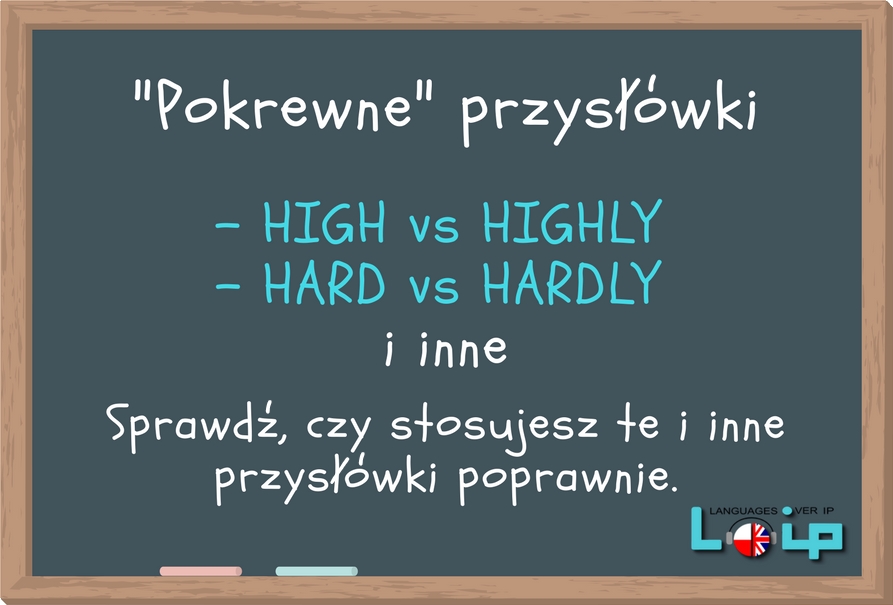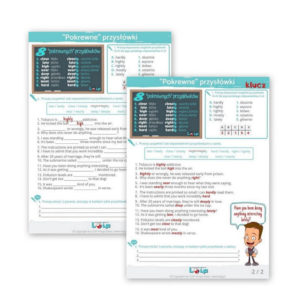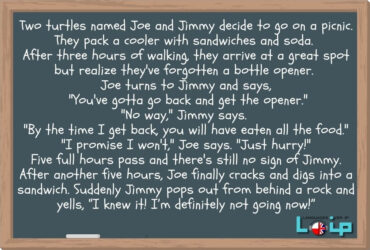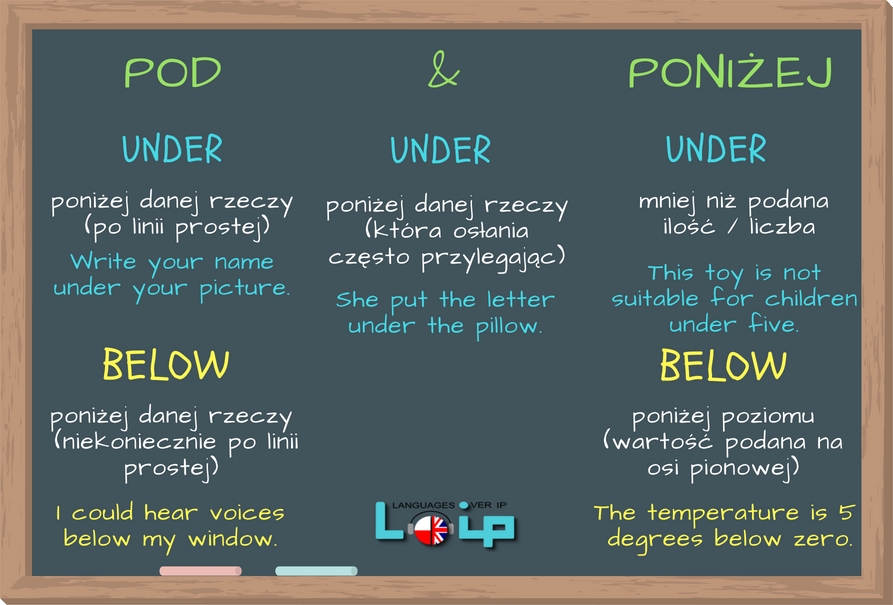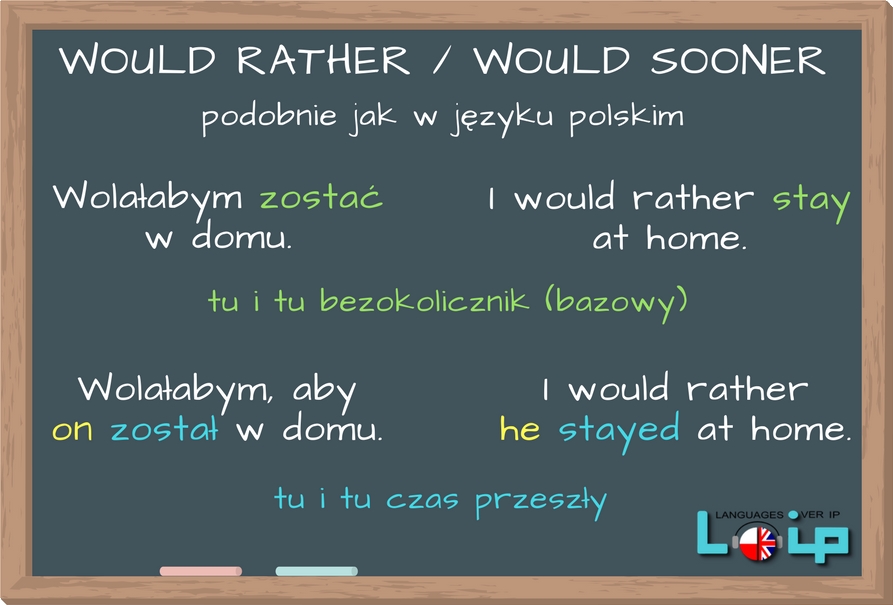„Pokrewne” przysłówki to takie, których formy są bardzo do siebie podobne, np. hard i hardly. Każda z nich ma jednak inne znaczenie.
Kup kartę z ćwiczeniami
dostępną w strefie PREMIUM.
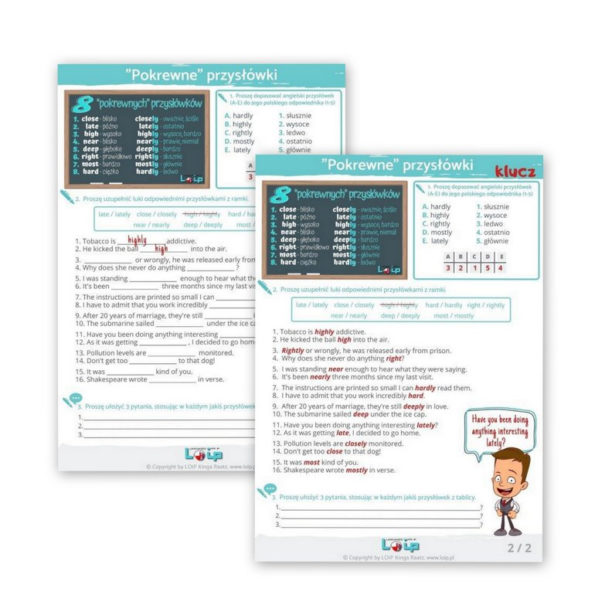
8 par „pokrewnych” przysłówków
1. close vs. closely
– close – blisko
np. He lives close to the school.
– closely – uważnie, ściśle
np. The work was closely monitored.
2. late vs. lately
– late – późno
np. He will be back late at night.
– lately – ostatnio
np. Have you seen her lately?
3. high vs. highly
– high – wysoko
np. He kicked the ball high into the air.
– highly – wysoce
np. She is a highly successful artist.
4. near vs. nearly
– near – blisko, niedaleko
np. I live near the station.
– nearly – prawie, niemal
np. It took nearly two hours to get here.
5. deep vs. deeply
– deep – głęboko
np. He has hidden it deep in the ground.
– deeply – mocno
np. Her decision deeply hurt her mother.
6. right vs. rightly
– right – dokładnie, prawidłowo
np. Have I spelled your name right?
– rightly – słusznie
np. He was rightly punished.
7. most vs. mostly
– most – bardzo
np. Thank you. You are most kind.
– mostly – głównie; przeważnie
np. Men mostly talk about sports.
8. hard vs. hardly
– hard – ciężko
np. He trains hard twice a day.
– hardly – ledwo
np. We hardly know each other.
ZESTAWIENIE
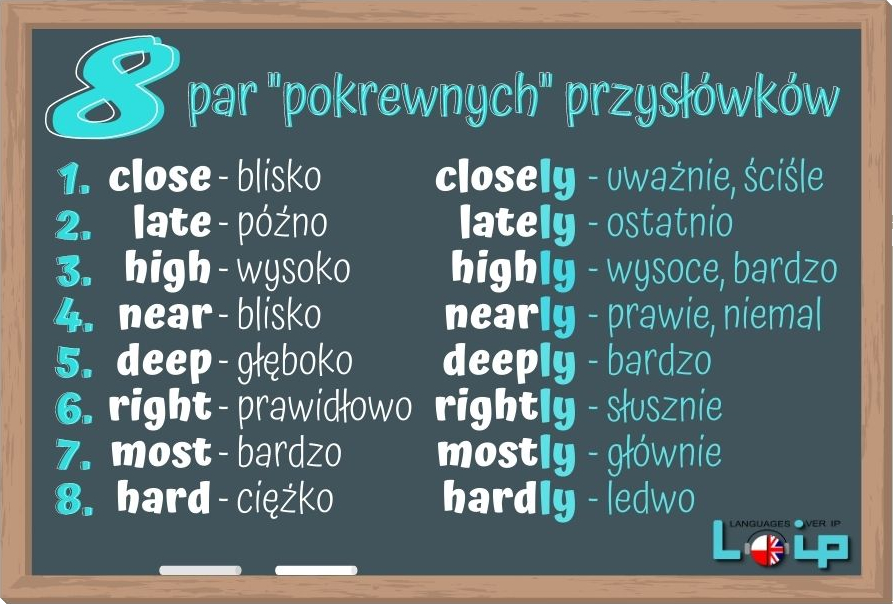
W strefie Premium znajdziemy artykuły wzbogacone o karty pracy, dzięki którym przećwiczymy i utrwalimy wiadomości omawiane we wpisie.
KUP WIĘCEJ i ZAPŁAĆ MNIEJ
– 3 zł za kartę przy zakupie 6-10 sztuk,
– 2 zł za kartę przy zakupie 11 i więcej sztuk
